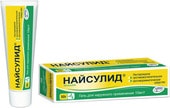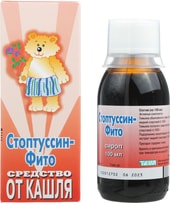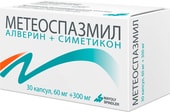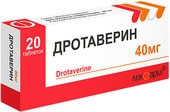Nephrodin Calcium Acetate 425mg capsules are a phosphate binder indicated for the treatment of hyperphosphatemia associated with chronic kidney disease (CKD). Each white-blue capsule contains 425mg of calcium acetate. Excipients include calcium stearate and silicon dioxide (anti-caking agents). The capsule shell is composed of gelatin. Supplied in high-density polyethylene bottles containing 120 capsules.
Nephrodin works by binding dietary phosphate in the gastrointestinal tract, forming insoluble calcium phosphate salts that are eliminated in the feces. This helps to reduce phosphate absorption and manage hyperphosphatemia, a common complication of CKD where the kidneys are unable to effectively excrete phosphate.
Absorbed calcium ions are bioavailable and absorbed through the intestinal tract until they form insoluble complexes with dietary phosphate. Absorption primarily occurs in the duodenum and proximal jejunum, with lesser absorption in more distal segments. The absorption rate (10-35%) depends on vitamin D levels and the calcium dose. Higher doses only marginally increase absorption. Normal daily dietary intake is approximately 1000-1500mg. Calcium is excreted roughly equally in urine and feces under physiological conditions. Parathyroid hormone, vitamin D, and thiazide diuretics reduce urinary excretion, while loop diuretics, calcitonin, and growth hormone increase it. Urinary excretion decreases in early CKD and increases during pregnancy. Calcium is also excreted through sweat glands and crosses the placental barrier, distributing into breast milk.
Treatment of hyperphosphatemia associated with chronic kidney disease (CKD) in patients undergoing dialysis (hemodialysis, peritoneal dialysis).
4 to 10 capsules daily, depending on serum phosphate levels. The daily dose should be divided according to the number of meals (usually 3-4 times a day). For optimal phosphate binding, Nephrodin should be taken with meals. A suggested schedule is: Breakfast (1-2 capsules), Lunch (2-3 capsules), Snack (1-2 capsules), Dinner (2-3 capsules). To avoid potential interactions, do not take other oral medications within 2 hours before or after taking Nephrodin. If a dose is missed, take the next dose at the regular time; do not double up on doses. Nephrodin can be used for extended periods.
Gastrointestinal disturbances may occur, including stool softening, nausea, feelings of fullness, belching, constipation, and diarrhea.
Hypophosphatemia; hypercalcemia (with or without clinical symptoms), such as that resulting from vitamin D overdose, paraneoplastic syndrome (bronchial carcinoma, breast cancer, renal cell carcinoma, plasmacytoma), bone metastases, sarcoidosis, or immobilization osteoparalysis; third-degree atrioventricular block; myasthenia gravis; hypersensitivity to active substances or excipients.
Use during pregnancy should only be considered if the potential benefits clearly outweigh the risks. Calcium acetate is excreted in breast milk; breastfeeding is not recommended while taking Nephrodin.
Continuous monitoring of serum phosphate and calcium levels, as well as the calcium-phosphate product, is essential, especially with concomitant use of vitamin D and thiazide diuretics. Dietary phosphate counseling should precede phosphate binder use and may depend on the type of dialysis treatment. Hypercalcemia may develop in CKD patients taking Nephrodin and vitamin D metabolites concurrently. Reduce Nephrodin dosage if diarrhea occurs. Nephrodin does not affect the ability to drive or operate machinery.
Vitamin D and its derivatives increase calcium absorption. Thiazide diuretics reduce renal calcium excretion. Monitor serum calcium levels when Nephrodin is co-administered with thiazide diuretics or vitamin D derivatives. Estrogens (estradiol) or vitamin A may also increase calcium absorption. Calcium may reduce the effects of verapamil and other calcium channel blockers. Adrenaline administration in patients with elevated serum calcium levels may lead to serious arrhythmias.
Store in a dry place below 25°C, out of reach of children. Shelf life: 2 years.
Available without a prescription.
Calcium Acetate, Nephrodin, Hyperphosphatemia, Chronic Kidney Disease, CKD, Phosphate Binder, Dialysis, Hemodialysis, Peritoneal Dialysis, Calcium Supplement, Kidney Failure, Renal Failure, Phosphate Control, Gastrointestinal Issues, Medication Interaction, Vitamin D, Thiazide Diuretics





